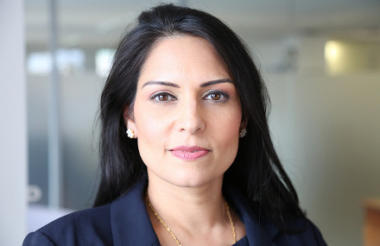The Department for International Development has unveiled £70m of funding for civil society organisations but has said it will cut unrestricted funding and require charities to follow government standards to access the money.
It said it would put greater emphasis on transparency and impact measurement, and will channel more funding to smaller charities.
DfID published its Civil Society Partnership Review on Friday, which outlines the department’s new approach to funding international aid organisations, which will see it shift focus from core funding to an “outcome-focused model”.
The department will introduce a Statement of Priorities and Expectations for grantees, similar to one it has for commercial suppliers. This will include supporting NCVO’s recommendations about transparency of executive pay and complying with the Fundraising Regulator’s standards.
By the end of 2017 grantees will be required to meet the full International Aid Transparancey Initiative standard (IATI) on their funding “ensure that all the organisations in their delivery chain also meet the standard”.
In return DfID said it would work with umbrella body Bond and other governments to “explore the possibility of reducing DfID reporting requirements where civil society organisations proactively publish their data through IATI”.
The review also said that DfID grants would “reflect the government’s broader reforms on the use of public funds and grant standards”. This is likely to be a reference to the government's anti-advocacy clause, which prevents money provided by government from being spent on lobbying.
Following the Kids Company scandal the Cabinet Office opened a review into grants and is expected to publish its findings before the end of the year.
The Cabinet Office also said it planned to introduce the anti-advocacy clause into all grant agreements, though the proposal was put on pause following an outcry from the charity and academic sectors.
Priti Patel, Secretary of State for International Development, who has previously been critical of the enshrining 0.7 per cent aid spending target in law, said in the foreword to the report: “The main strategic outcome of this review is to enhance the relationship DfID has with existing high performing organisations and to develop new partnerships with a broader range of CSOs.
“This includes moving away from the previous system of upfront, unrestricted core funding from the UK government to the largest CSOs, and towards a more open, competitive and outcome-focused model of funding."
£70m funding
The review outlines the four main funding streams that the department will focus on and says that organisations in receipt of funding must be more transparent, as well as being able to demonstrate impact and accountability.
DfID announced that £30m will be available through its UK Aid Match programme, in line with the Conservative Party’s manifesto commitment to double the funding available under this scheme.
The programme matches public donations to charity appeals and applications are open until 21 January 2017 with DfID saying it is looking for proposals focused on family planning, nutrition and ending modern slavery.
Small and medium-sized civil society organisations can also apply for a share of £40m from the UK Aid Direct fund until 31 January 2017.
DfID said: “Even the smallest organisations are welcome to apply. Funding criteria will reward bids that demonstrate cost effectiveness in delivering outcomes for the poor. Successful bids will directly tackle poverty and link to at least one of the UK Aid Strategy's core strategic priorities”
DfID will launch a new programme, UK Aid Connect, next year which will support “coalitions of CSOs, think tanks, public, private and third sector organisations to help find solutions to current complex situations whilst tackling tomorrow’s challenges”.
DfID said this had been launched in response to the need for organisations to work together “to create innovative and flexible solutions”.
The fourth programme is UK Aid Volunteers which will include support for International Citizen Service. No funding commitment for this programme was announced in the review.
Details of funding programmes are available from DfID's website.









